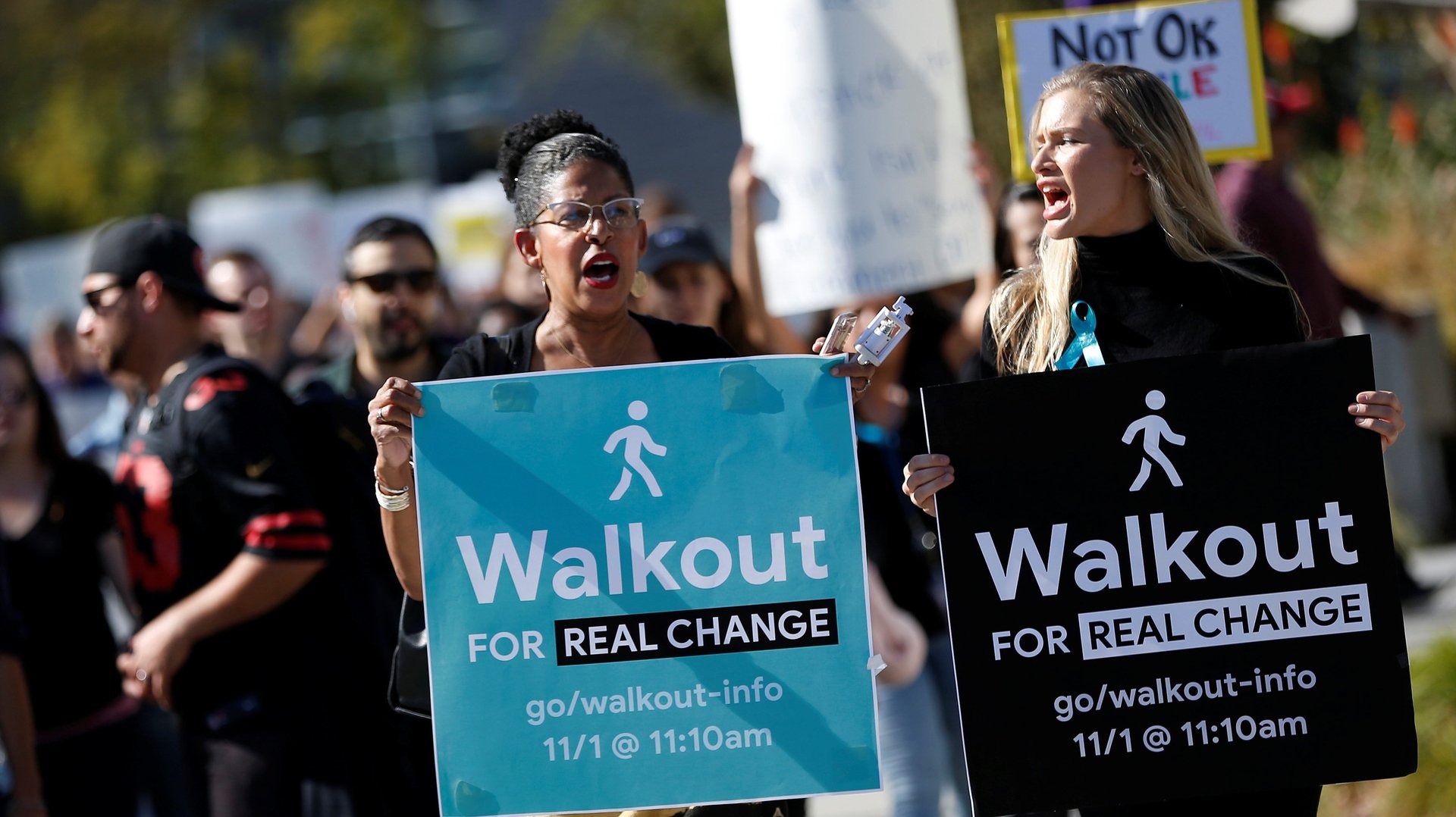Employees have given rise to something far more powerful than “CEO activism”
Corporate activism has been a dominant feature of Donald Trump’s presidency. Its early iterations were characterized as “CEO activism,” a new tendency among senior corporate leaders to make public statements on such socially polarizing issues as immigration, climate change, and LGBTQ rights. But lately, corporate activism has dramatically morphed, with employees now directly challenging business leaders to reconsider their companies’ commercial relationships and authority structures.


Corporate activism has been a dominant feature of Donald Trump’s presidency. Its early iterations were characterized as “CEO activism,” a new tendency among senior corporate leaders to make public statements on such socially polarizing issues as immigration, climate change, and LGBTQ rights. But lately, corporate activism has dramatically morphed, with employees now directly challenging business leaders to reconsider their companies’ commercial relationships and authority structures.
The new activism remains values-driven, but in calling for greater participation and decision-making by workers, it has become the antithesis of CEO activism. Instead, it constitutes an effort to turn companies into functioning democracies that can operate in the public interest. (That this vision has arisen in the corporate world while becoming much more elusive in the political realm is surely no coincidence.)
Rather than top-down moves framed as expressing the personal values of CEOs—for example, Silicon Valley leaders’ widespread support for DREAMers after the Trump administration threatened their immigration status—employees in today’s progressive workplaces are seeking strategic shifts in the core business. Recent employee expressions have been bold and manifold:
- Employees of Google have strongly registered their objections to re-entering China and collaborating with the US Department of Defense.
- Staff at Big Four accounting firms released an anonymous advertisement supporting the Hong Kong protests, provoking carefully worded counter-statements from management.
- Workers at Whole Foods and Ogilvy objected to commercial relationships with Customs and Border Protection (CBP) and Immigration and Customs Enforcement (ICE).
- June brought a walkout at Wayfair in opposition to the company’s business with migrant detention centers.
- Amazon employees took aim at what they called company inaction on climate change.
- Equinox and Soul Cycle employees supported public protests and boycotts following the decision by investor Stephen Ross to hold a fundraiser for Trump in the Hamptons.
- At both Google and Nike, female employees denounced the impunity of company leadership from consequences of sexual harassment.
Companies are not governments, and their customers are not the electorate—but the activities of companies now take center stage in the political world. Enterprises no longer consider it prudent to wait for governments to set policy before acting on such key public concerns as climate change. In other policy areas such as artificial intelligence, a handful of private companies wield such monopoly on expertise that policymakers cannot design effective legislation without them.
At the same time, businesses are rethinking how to operate internationally amid the dissolution of the Western neoliberal consensus and weakened frameworks for international norm-setting and cooperation. Corporate avowals of political “neutrality”—which often entail signaling culturally liberal values while lobbying against regulation and weighting donations toward conservative political forces—are now scorned as untenably hypocritical. Concerned citizens have concluded that challenging wealthy, powerful corporations offers faster and more effective impact than engaging in electoral politics mired in voter apathy, gerrymandering, disenfranchisement, disinformation, and corruption.
Companies are responding in two distinct ways. Externally, many seem to have accepted that pitching universal appeals to consumers across the political spectrum has become impractical. People are ever keener to buy from (and work at) companies that reflect their values, and to participate in “grab your wallet” boycotts amplified on social media. Leaning in on these divisive developments are brands such as Nike and Gillette, having determined that it’s worth launching marketing campaigns designed to infuriate some consumers while securing the loyalty of others.
Inside organizations, there are even more compelling developments. Employees are taking aim at decision-making structures in the C Suite, challenging the power and authority concentrated in a small coterie of high-net-worth individuals. More and more staffers want private-sector companies to operate like democracies, not autocracies. They want their values and beliefs to impact core strategic and commercial decisions. And they are challenging sustainability efforts that are disconnected to—or contradict—core business decisions.
Employees are reshaping the corporate narratives on the importance of “purpose” into forms executives never envisioned. For them, corporate “purpose” is meaningless unless it takes direct aim at the concentration of money and power atop the organization. They are using the tools of hyper-transparency—email leaks and petitions shared with the media—to weaponize readily available internal information. They contend that companies cannot make statements supporting immigration while doing business with ICE, that companies cannot say they support women’s rights while allowing leaders to get away with sexual harassment or funding an anti-abortion policy agenda, that employers cannot tout renewable energy investments while maintaining big oil and gas portfolios.
The Business Roundtable’s announcement that America’s CEOs no longer view shareholder value enhancement as the sole purpose of companies marks a culmination of these pressures. But it does not begin to address them. The comforting notion of “balancing” shareholder and other stakeholder interests can no longer be fulfilled by hedging the two audiences and hoping no one notices; employees, the most powerful stakeholders of all, are watching closely.